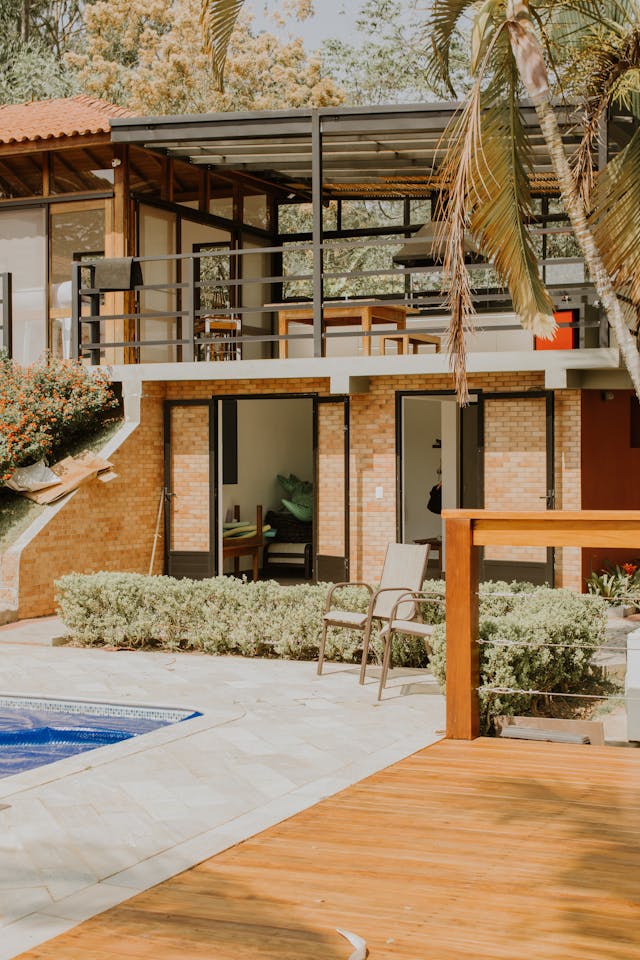Are short term rentals a profitable investment? A comprehensive Guide to Maximizing Returns


HT
Founder and CEO
Blog Author
The Long term goal, the short term investment
With over 62 Billion worth being represented in the short-term rental market, is it worth starting anew? Is there a demand with so much supply? With a well saturated lump sum of short-term and long-term rentals the economy has been unpredictable with interest rates fluctuating and taxes being more than we had bargained for, yet society still has the urge to spend similar amounts of money if not more post-pandemic. Going local, going green, and modernized living has become more attractive to the societal eye, so these marketing and rental tips might be worth more than just your while, but the time to decide if a rental is best for you.
Investing in a fixer upper, ready to lease rental property, or REIT may be some of the three best investments in this category of real estate. If you’re looking for more insights on REITs, be sure to check out our blog below. Short-term rentals have affordable accommodations and create memorable experiences that have become profitable, so starting a short-term rental is most definitely profitable and can be built little by little with the investment of a fixer upper. Applying for financial support programs are an option, just one that needs to meet the standards you can live up to. Focus on having enough leverageable money to further your short-term investment in ways you seek best like possible upgrades, economic declines and situations, extra costs, living expenses, etc. Don’t run yourself short for the short term idea, so plan out the work, finances, and legal resources needed to continue with your vision. Through some of our extensive research the general profitability range for short term rental is 8-12% annually. However a good cap rate is 15%. Cap rate is the rate of return you receive on an investment. To get such an investment to a 15% cap rate this example may help.
Purchase price of property:
$500,000
Annual Gross Income:
$120,000 (similar to $10,000 per month)
Operating expenses:
$45,000 annually (utilities, taxes, not including mortgage, insurance)
NOI:
$120,000 – $45,000 = $75,000
Leaving this possible property at 15% cap rate.
So now that the gist of a short-term rental’s profitability is set in place, let’s talk about the meat and bones of it all… marketability to maximize profitability.
Optimize your bookings consistently, and aim for a 75-90% occupancy rate using Pricing tools like Airbnb’s smart pricing, PriceLabs, Beyond Pricing to adjunct your rates based on demands.
Use apps to optimize your booking capabilities and gain highly rated reviews from the specs of your property and the amenities and services offered there. This will increase your property’s engagement, allow for repeat guests, and will increase occupancy.
Target HIgh demand location and choose tourist heavy or business-conference locations with high or seasonal year round demand. This could be coastal towns, cities near parks, local attractions/ consistent event locations. Be aware of the location of your potential property near beaches, resorts, downtown areas, which tend to provide higher profitability.
To market towards a bigger audience and make your potential rental more attractive add premium or memorable features to your property like a Hot tub, pool, game room, outdoor space for activities, green friendly/sustainable environment or materials. This will allow you to charge a premium price and create a more memorable experience which leads to returning guests. You could also include maps, coffee bars, modern appliances, Wifi, linens, artwork, statement or wow factor, refreshing goods or allergen friendly snacks. As of marketing your property will need to have high quality photographs taken, be listed widely throughout social media, and run promotional deals on or off season! Booking.com, Vrbo, Airbnb, Tik Tok, Tripadvisor, etc, are great digital relays to display your property, and or market to a larger audience in the market.
To keep your investment cost effective you’ll need to avoid overpaying for routine work or possibly negotiate cleaning agreements, and apply eco-friendly water saving features, smart thermostats, efficient appliances, and allow for more natural lighting so light usage can be at a low or limited use rate.
Along with this investment you can receive tax deduction incentives. Short term rentals allow for business expenses deductions like repairs, supplies, property management,etc)
You can also have depreciation deductions even as it appreciates with economic times. 1031 exchanges are also taken into account and defer capital gains taxes when selling by applying 1031 into another investment property. We highly recommend discussing statistics and tax information with a professional agent to maximize profit and minimize taxes and liabilities. Not only will you receive these incentives but you can also receive a Tax gain exclusion and apply money to zero taxes (excluding property tax) on up to 250K-500k capital gains referring to single/married ownership if the property is used as a primary residence for 2 of the 5 years owned.
While we did mention most of the pros to owning a short term rental, we didn’t’ forget to let you in on the cons to expect.
Lack of liquidity will be an issue if your property isn’t marketable or marketed enough to the short-term buyers you seek. Lack of liquidity could mean different things to different owners like not being able to keep up with the continuous salary or pay for any property managers you obtain, cleaners, and employees you may have because of credit losses, vacancy loss, or financial mismanagement with pricing of leased property. This also displays similar financial priorities like fixed bills, loans, and general property upkeep affordability.
Another con to add to the list would be risk and liability factors when it comes to renovating, or elevating your property. For example adding a pool to the property will most likely raise the insurance rate, and risk rate of your property because there is more to cover for if someone gets injured or a fatality occurs. Be aware of any and all risk adjustments needed to be evaluated on your property and if you can supply the finances for those risks.
With both the pros and cons that come along with short-term rentals they are overall profitable if you plan thoroughly and have enough leverage to sustain any course of action needed. We suggest creating an organized plan of what you want the statistics to look like on the property as it works for you, and how you want it to.
Don’t sell yourself short on rental investments and invest in knowledge for success!




